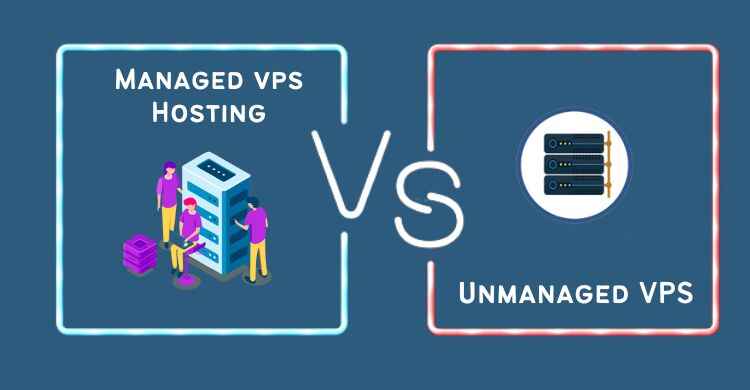When choosing a Virtual Private Server (VPS) for your website or application, one of the most crucial decisions you’ll face is whether to go with a managed or unmanaged VPS. Each option has its own set of benefits and drawbacks, and the best choice depends on your technical expertise, resources, and the specific needs of your project. Here’s a detailed breakdown to help you make an informed decision Managed vs. Unmanaged VPS .
Table of Contents
What is a VPS?
A Virtual Private Server (VPS) is a virtualized server that mimics a dedicated server within a larger physical server. It offers more control and flexibility than shared hosting, and typically, it provides better performance and security. VPSs are used for a variety of purposes, including hosting websites, running applications, and managing databases.
Managed vs. Unmanaged VPS
Managed VPS
Definition: A managed VPS is a hosting solution where the provider takes care of the server’s administration, maintenance, and support. This typically includes tasks like updates, security patches, backups, and monitoring.
Pros:
- Expert Support: With a managed VPS, you benefit from the expertise of the hosting provider’s support team. They handle routine tasks and troubleshooting, which can be a huge advantage if you lack technical skills or resources.
- Time Savings: Since the provider manages server-related tasks, you can focus on your business or application instead of dealing with server maintenance.
- Enhanced Security: Managed VPS services often include advanced security measures, such as firewalls, intrusion detection systems, and regular security audits, which are managed by professionals.
- Automatic Backups: Regular backups are typically included, ensuring that you have recent copies of your data in case of emergencies.
- Performance Optimization: Providers often optimize the server settings for performance and stability, which can result in better performance without you needing to configure it yourself.
Cons:
- Higher Cost: Managed VPS solutions are generally more expensive than unmanaged options because you are paying for the additional support and services.
- Less Control: You might have less control over certain aspects of the server configuration and management, as the provider handles most of these tasks.
Unmanaged VPS
Definition: An unmanaged VPS provides the basic infrastructure without the additional management services. You are responsible for installing, configuring, and maintaining the server yourself.
Pros Managed vs. Unmanaged VPS :
- Lower Cost: Unmanaged VPS plans are usually cheaper because you’re not paying for management and support services.
- Greater Control: You have full control over the server environment, allowing you to customize and configure the server to meet your specific needs.
- Learning Opportunity: Managing your own VPS can be a great learning experience, helping you gain valuable skills in server administration and troubleshooting.
Cons Managed vs. Unmanaged VPS:
- Technical Expertise Required: Managing an unmanaged VPS requires a good understanding of server administration, including installation, configuration, security, and maintenance.
- Time-Consuming: Without the support of a management team, you need to spend more time handling updates, backups, and security issues.
- Potential for Misconfiguration: Without professional oversight, there’s a risk of misconfiguring the server, which can lead to security vulnerabilities or performance issues.
- No Support: You’ll need to rely on online resources or community forums for support, which can be less reliable than professional assistance.
Which Option is Right for You?
1. Budget Considerations: If you have a tight budget and are comfortable with server management tasks, an unmanaged VPS might be the best choice. On the other hand, if you prefer to focus on your core business and don’t want to deal with server management, a managed VPS is worth the extra cost.
2. Technical Expertise: If you or your team have the necessary technical skills and are willing to invest the time required for server management, an unmanaged VPS can offer more control and cost savings. However, if you lack these skills or want to avoid the hassle of managing a server, a managed VPS is the better option.
3. Time Constraints: For those who need to focus their time on other aspects of their business, a managed VPS provides peace of mind by handling the server management tasks, freeing you up to concentrate on your core activities.
4. Security and Performance: If security and optimal performance are top priorities and you want to ensure these aspects are handled by experts, a managed VPS offers added security features and performance optimizations.
In summary, the choice between a managed and unmanaged VPS comes down to balancing cost, control, technical expertise, and time. A managed VPS provides comprehensive support and reduces the burden of server management, while an unmanaged VPS offers greater control at a lower cost but requires a higher level of technical skill and time investment. Assess your needs carefully and choose the option that aligns best with your goals and resources Managed vs. Unmanaged VPS .



